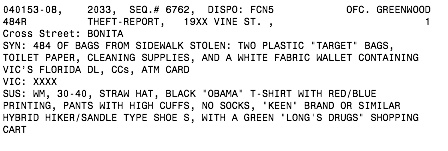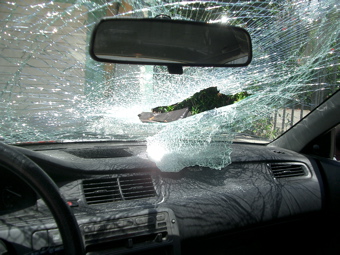So here I am on vacation. I slept late; or more accurately, went back to bed after my spouse/best friend went off to work. I got up, microwaved the early-morning coffee, and sat down at the computer.
I happened across a headline about a fatal shooting over the weekend in Oakland — the city’s 52nd homicide this year. That brought to mind a conversation I had with a friend last week during which I rashly said that though Chicago has gotten lots of media attention this year over its shocking wave of killings, Oakland’s rate was still actually many times that of Chicago. Yes — I said “many times.” But doing the arithmetic in my head as I spoke, I corrected myself — Oakland’s rate is higher than Chicago’s, though not “many times.”
Seeing the story about the weekend murder, I decided to quickly run the numbers to see whether my assertion was true. (Reminder for the next time this impulse hits me: When I run the numbers, it’s never “quickly.”)
What I’ve done in each case is to “annualize” the number of homicides by taking the current toll, dividing by 9 to get a monthly average, then multiplying the result by 12 to project a 2016 total based on that monthly total. To get a rate of homicides per 100,000 population, I divided the projected 2016 totals by the city population — or actually, by the number of 100,000s in each city’s population. Oakland’s population is currently estimated at about 420,000 (divisor used in my arithmetic=4.2) and Chicago’s is 2,720,000 (divisor=27.2).
So, as of Monday, September 26, with 52 homicides reported so far in Oakland and 545 reported in Chicago, here are the annualized rates:
Oakland’s 2016 homicide rate per 100,000 residents: 16.39
Chicago’s 2016 homicide rate per 100,000 residents: 26.72
Regard those as rough (but good ballpark) numbers. Each includes a few “justifiable” killings — those committed in self-defense, for instance — that the FBI won’t count in its annual tally of homicides and cases of non-negligent manslaughter.
How much have things changed in the last few years?
In 2012, Oakland experienced a spike in homicides: 127, excluding a handful of killings that were ruled to be justifiable. Chicago had a total of 500 homicides, excluding a half-dozen “justifiable” killings. Using the same method, here are the rates:
Oakland: 31.75
Chicago: 18.45
The FBI calculated the national homicide rate in 2012 at 4.7 per 100,000 population. Chicago’s number was four times the national rate; Oakland’s was more than seven times the national rate.
The limited takeaways from the Oakland vs. Chicago rates:
Oakland’s decline is historic, in a sense: Barring a sudden surge in killings, the city is headed to its lowest annual homicide toll since 1999, when 60 were recorded, and would be the second lowest since 1985, which is as far back as the FBI numbers go. (Yes, I could hunt down the earlier numbers and perhaps will on some future vacation or workday.)
One also observes that 1999 was at the height of the dot-com boom, when employment was high and the regional economy was generally robust. Right now, we’re in the midst of an even bigger boom — characterized by home prices that are out of reach for many. Coincidence or correlation?
Chicago’s murder surge is also historic in a sense, with the projected number representing about a 50 percent increase in homicides in one calendar year. Though the overall total is still far below the terrible years of the early ’90s, when the city’s homicide toll topped 900 in 1991, 1992 and 1994, the city hasn’t seen anything like that year-over-year jump in the past 30 years (and maybe ever).



